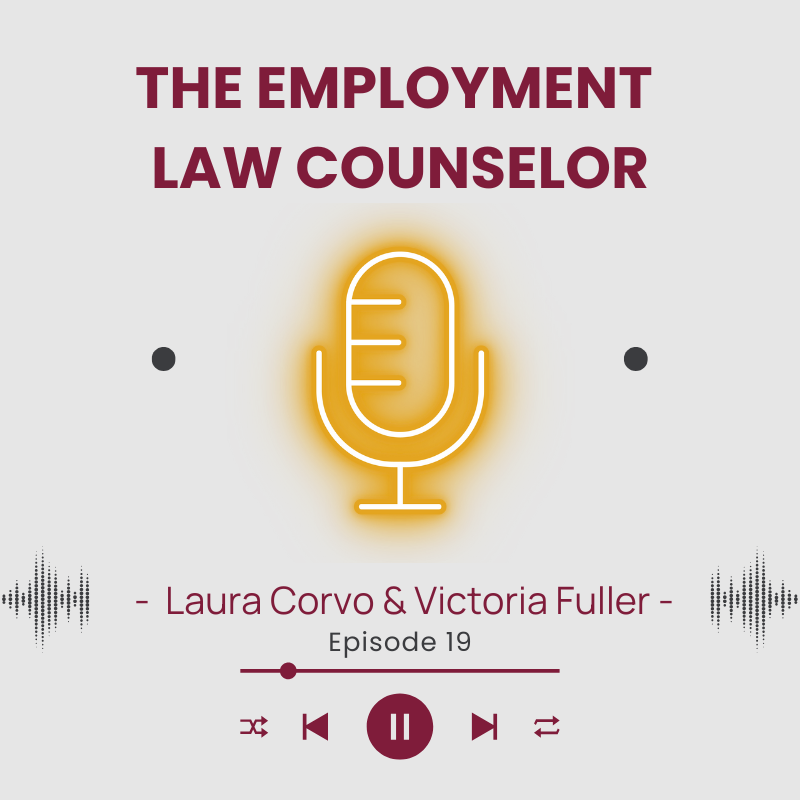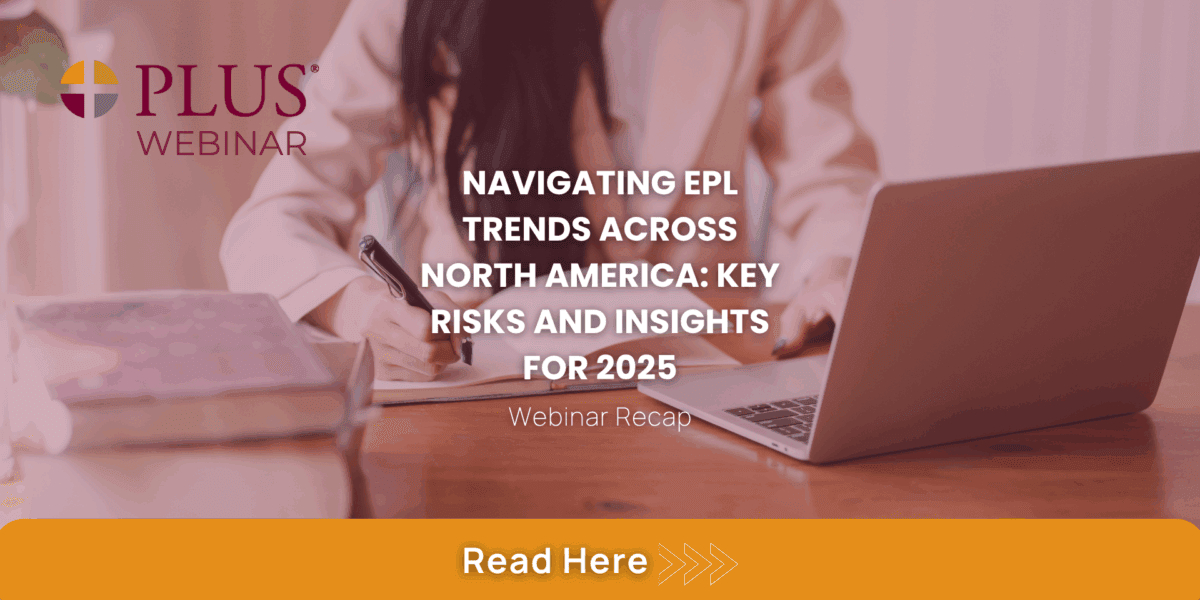June 21, 2021
Private Equity & the Impact of the COVID-19 Pandemic: Part 1 of 3
Viviane Falzon is the Head of Complex Management Liability Claims at Ironshore /Liberty Mutual Insurance Co. Viviane has been with Liberty since October 2016 in her current role. She has 30 years experience in the insurance industry and is licensed attorney with diversified claims and underwriting experience in domestic and international Financial Lines and Specialty insurance products, including Directors and Officers, Investment Managers and Financial Institutions, Professional Errors and Omissions, Employment Practices Liability, Pension Trust Fiduciary Liability, Crime and Fidelity, Cyber Crime and Liability, Representations and Warranties, Surety, and Construction Risk policies.
Scott A. Schechter is a partner at Kaufman Borgeest & Ryan LLP and has been with the firm since 2001. Scotts practice concentrates on representing international and domestic insurers in all aspects of claims handling and coverage litigation, particularly in the areas of Directors and Officers Liability, Financial Institutions Liability (with an emphasis on banking, private equity, hedge funds, venture capital, and investment advisers), and Professional Liability. Scott also defends individuals and companies in professional liability and commercial litigation.
Joshua A. DiLena is a partner at Kaufman Borgeest & Ryan LLP and has been with the firm since 2010. Joshuas practice focuses on Management and Professional Liability involving financial institutions, particularly private equity firms; and also includes the areas of public and private Directors and Officers Liability, Errors and Omissions, and Fiduciary Liability. Joshua represents insurers in all aspects of the claims handling process, as well as coverage litigation.
Matthew E. Mawby Is a partner at Kaufman Borgeest & Ryan LLP and has been with the firm since 2015. Matts practice focuses on complex coverage litigation and arbitration, particularly in the areas of Financial Institutions Liability, Directors and Officers Liability, Professional Liability, and Employment Practices Liability. Matt also counsels international and domestic insurers in all aspects of claims handling and resolution of coverage disputes. Matt also defends individuals and companies in commercial litigation and arbitration.
Andrew S. Paliotta is an associate attorney at Kaufman Borgeest & Ryan LLP and has been with the firm since 2018. Andrews practice concentrates on representing international and domestic insurers in insurance coverage matters and coverage litigations/arbitrations involving Directors and Officers Liability, Employment Practices Liability, Errors and Omissions, and Professional Liability claims. Andrew also represents commercial entities in arbitration and litigation in both state and federal court in professional liability actions and various commercial and construction claims.
This is post is Part 1 of 3. Part 2 will be available tomorrow here on the PLUS Blog.
I. Introduction
Coronavirus disease 2019 or COVID-19, first discovered in late 2019, has impacted over 188 countries to date. As of the writing of this article, there have been over 30 million cases of COVID-19 in the United States alone.[1] While the impact on health and welfare cannot be understated, the economic impact of COVID-19 has also been enormous, adversely affecting every type of business from the multi-national corporation to the mom-and-pop shop. The focus of this article is the effects of COVID-19 at the private equity level, which present challenges unique to the PE space, as well as some challenges shared by other businesses around the world. In addition, we will explore the potential implications of COVID-19s impact on PE firms and their insurers.
II. Increased Regulatory Scrutiny
While every insurer of a PE firm is familiar with a claim submission consisting of a subpoena, formal order of investigation or target letter, and the underwriting risks posed by administrative and regulatory investigations/proceedings, the attempts by the government at both the federal and state levels to quell the economic impacts of COVID-19, and the potential for allegations of fraud, will only increase these potential risks. The outpouring of relief in both monetary form (as discussed below) and forbearance on certain regulatory requirements (such as the SEC temporarily suspending the requirement under the Investment Company Act for in-person board votes) will potentially lead to greater scrutiny by regulators moving forward.
A. PPP Loans and Private Equity
On March 27, 2020, the Coronavirus Aid, Relief, and Economic Security (CARES) Act, a $2 trillion-dollar economic relief package, was signed into law. Part of the CARES Act was implementation by the Small Business Administration (SBA) of the Paycheck Protection Program (PPP): a loan designed to provide a direct incentive for small businesses to keep their workers on the payroll.[2] (The Consolidated Appropriations Act, 2021, expanded the PPP by authorizing second draw loans for small businesses that had previously received a PPP loan.) In April 2020, the SBA issued an Interim Final Rule that provided, among other things, that private equity firms are primarily engaged in investment or speculation, and such businesses are therefore ineligible to receive a PPP loan,[3] thus precluding (at least on its face) the use of PPP loans for PE operations. The foregoing Rule did not foreclose the opportunity for portfolio companies owned by PE firms (and backed with PE funds) to obtain PPP loans as long as they fulfilled the other loan qualifications, including that the business had 500 employees or fewer.[4]
In July 2020, after pressure from Congress, the SBA publicly released PPP loan data, including the identities of the businesses that received loans of more than $150,000. While the loan data did not reveal the exact amount of the loans, it did reveal that at least ten PE firms received loans of between $150,000 and $1 million.[5] While a partner in one PE firm noted that the funds were used to cover only salaries of support staff that would have been laid off,[6] it is undeniable that the disclosure of the loan data placed increased scrutiny on businesses that received the loans, the SBA and banks that underwrote and issued the loans, which also led to some businesses deciding to return the funds. The critical point is that a business was required to certify its compliance with the PPPs qualification rules prior to disbursement of the loan. These certifications will inevitably come under increased scrutiny for the truthfulness in the disclosures.
The CARES Act created a Special Inspector General for Pandemic Recovery (SIGPR) in the Treasury Department with the authority to investigate and audit a PPP loan (to conduct, supervise, and coordinate audits and investigations of the making, purchase, management, and sale of loans, loan guarantees, and other investments) and to refer matters to the Department of Justice (DOJ) for a civil or criminal proceeding.[7] In this regard, the DOJs Fraud Section has charged over 100 defendants for alleged PPP or similar loan fraud.[8] Further, it also appears that the Division of Enforcement of the SEC has issued requests for information to several companies that received PPP loans in order to examine whether positive or insufficiently negative statements in recent 10-Qs may have been inconsistent with certifications made in PPP applications regarding the necessity of funding.[9]
In the insurance coverage context, the increased scrutiny of PPP loan recipients (whether PE firms or other companies) may lead to more inquiries, investigations, and potentially civil and criminal proceedings by various government entities (the DOJ, SEC, U.S. Attorney and even the IRS), which could lead to an increase in claims submissions moving forward. Given the breadth of PPP loans provided by the SBA – which as of March 21, 2021 was over 8.2 million loans for a total of over $718 billion[10] – it could take some time for the government to uncover and investigate potential fraud and misrepresentations in the PPP loan process, which is a risk that certainly should be considered in the underwriting process.
III. Employment-Related Claims
One area of concern for PE firms and their portfolio companies is the increased risk of employment-related claims arising out of the COVID-19 pandemic. The increased use of furloughs, layoffs, and salary reductions by PE firms and their portfolio companies is likely to result in increased employment-related litigation. Furthermore, companies may face increased exposure to lawsuits for failure to adequately protect employees who have been directed to return to the office. While many types of employment claims may be made relating to the COVID-19 pandemic, several specific areas of liability may be of particular concern to private equity firms and/or their portfolio companies.
A. FFCRA Lawsuits & Private Equity
In March 2020, the Families First Coronavirus Relief Act (FFCRA) created two new emergency paid leave requirements in response to the COVID-19 pandemic. First, the Emergency Paid Sick Leave Act (ESPLA) requires employers with 500 or fewer employees to provide two weeks of paid sick leave to employees at partial pay, up to a specified cap. Second, the Emergency Family and Medical Leave Expansion Act (EFMLEA), which amended the Family and Medical Leave Act (FMLA), permits certain employees to take up to twelve weeks of expanded family and medical leave, ten of which are to be paid leave at partial pay, up to a specified cap. Certain states and localities have also passed similar legislation expanding paid leave options to employees impacted by the COVID-19 pandemic. While the FFCRAs expanded leave expired on December 31, 2020, litigation surrounding the FFCRA is certain to last well beyond the end of last year.
For private equity firms, which tend to employ fewer than 500 employees and will therefore be required to provide qualifying employees with expanded leave benefits under the ESPLA and EFMLEA, caution must be taken when evaluating leave requests and considering whether qualifying employees have met all legal requirements. The FFCRA incorporates the FLSAs remedies provisions, such that an employee who is denied expanded leave will be able to recover damages in the form of lost wages, salary, benefits and other compensation (or the costs of actual monetary losses resulting from the denial of leave, such as costs of child care). Further, a successful employee is entitled to liquidated damages equal to the employees actual damages, plus interest effectively doubling an employers exposure. While benefit caps reduce exposure to an individual claim by an employee, plaintiffs attorneys may find bringing class action or collective action cases to be lucrative when an employer has improperly denied a larger number of expanded leave requests.
From a coverage standpoint, given that the ESPLA and EFMLEA programs incorporate the FLSAs remedies provisions, wage and hour exclusions found in many types of insurance policies may preclude coverage for lawsuits alleging improper denial of ESPLA and EFMLEA benefits.
B. Other Potential Employment-Related Disputes
Given that many businesses, including private equity firms, have employed or are considering employing cost-cutting measures such as layoffs, furloughs or salary reductions, private equity firms must also be mindful of the potential for discrimination and retaliation lawsuits that may result from reductions in force or pay. As with all reductions in force, even if individual employees are separated for legitimate, non-discriminatory business reasons, discharged employees may be able to assert a discrimination claim based on disparate impact. For example, if a company has greatly increased the diversity of its employees in the past year pursuant to diversity and inclusion initiatives, conducting layoffs or furloughs based only on seniority might have a disparate impact on minority employees who were most recently hired. Retaliation claims are also a concern particularly if employees who have expressed health concerns about returning to work are chosen for separation or furlough. Given these potential claims, among others, private equity firms should carefully consider how to carry out reductions in force or reductions in salary before implementing such programs.
C. WARN Act
The federal Workers Adjustment and Retraining Notification Act (WARN Act) requires that employers provide 60 days written notice before effecting plant closures and mass layoffs or be subjected to liability for back pay and benefits. The WARN Act potentially creates exposure to a PE firm and its affiliated entities when a portfolio company acquired by the PE firm ceases operations without providing the required notice under the WARN Act.
In the context of the COVID-19 pandemic, it is important to keep in mind that the WARN Act does have several exceptions to the 60-day notice requirement, including when layoffs are required due to a natural disaster or unforeseeable business circumstances i.e., a sudden, dramatic, and unexpected event that the employer could not have reasonably foreseen. While the latter exception may apply to many businesses forced to conduct layoffs due to declines in revenues resulting from the pandemic, employers must still provide employees with as much notice of a plant closure or mass layoff as practicable.
A Florida federal district court recently denied a motion to dismiss a WARN Act claim based on plant closures or mass layoffs necessitated by the COVID-19 pandemic in Benson v. Enterprise Leasing Co., No. 20-cv-891, 2021 WL 1078410 (M.D. Fla. Feb. 4, 2021). There, Defendants argued that dismissal was warranted on the basis of the two exceptions/affirmative defenses, which appeared on the face of the complaint. With respect to the natural disaster defense, while the Court recognized that COVID-19 is a natural disaster, it explained that to rely on this defense, the plant closing or mass layoff must have been a direct result of the natural disaster; and here, the shutdowns indirectly resulted from COVID-19 through the economic downtown caused thereby. The Court recognized that the second defense unforeseeable business circumstance was an appropriate affirmative defense in this context, but could not dismiss on this basis because there was a fact issue as to whether notice had been given as soon as practicable.
The district court in Benson certified its decision for immediate appeal to the United States Court of Appeals for the Eleventh Circuit, which will undoubtedly be closely monitored and the decision may provide insight into how courts will treat WARN Act claims related to the pandemic.
With respect to private equity firms, existing case law indicates that such firms should be concerned about potential WARN Act liability if affiliated portfolio companies institute mass layoffs without providing the required notice to impacted employees.
In particular, several cases decided over the past few years have held that a private equity firm, while not a direct employer of impacted employees, may nevertheless be held liable for violations of the WARN Act under a single employer theory. Courts have routinely used a five-factor test promulgated by the Department of Labor (DOL) to determine whether a private equity firm can be considered a single employer with its affiliated portfolio company: (1) common ownership; (2) common directors and/or officers; (3) de facto exercise of control; (4) unity of personnel policies; and (5) operational dependency between the PE firm and its portfolio company. While each case is necessarily based on its unique facts, some courts have focused almost exclusively on the element of de facto exercise of control. In those cases, a private equity firm is much more likely to be held liable under the WARN Act if it makes the decision to conduct the layoffs or strongly pressures the portfolio company to conduct the layoffs.
In an effort to minimize potential WARN Act liability and exposure, PE firms are well-advised to take steps to separate themselves from their portfolio companies decisions to conduct mass layoffs. Of course, with the hands-on management approach of many PE firms with respect to their portfolio companies, the WARN Act will undoubtedly be an area of increased activity and increasing risk for PE firms and, particularly, for their portfolio companies.
From an insurance coverage perspective, insurers providing private equity coverage typically include exclusions for WARN Act claims. However, because coverage questions turn on specific policy language and factual circumstances of each case, the scope of a WARN Act exclusion may not be sufficient to preclude an insurers coverage obligations in some instances. Thus, the likelihood of increased exposure to PE firms for WARN Act claims may, in turn, also impact private equity insurers with narrowly-worded WARN Act exclusions, and this risk should be considered during the underwriting process.
This article will be continued in a following post.
[1] https://covid.cdc.gov/covid-data-tracker/#cases_casesinlast7days
[2] https://www.sba.gov/funding-programs/loans/coronavirus-relief-options/paycheck-protection-program
[3] https://home.treasury.gov/system/files/136/Interim-Final-Rule-on-Requirements-for-Promissory-Notes-Authorizations-Affiliation-and-Eligibility.pdf
[4] The so-called affiliate rule is particularly important in the PE context as a business must include the employees of any companies that it is affiliated with which includes an entity, concern, or individual that owns or has the power to control more than 50% of the concerns voting equity. See https://www.sba.com/funding-a-business/government-small-business-loans/ppp/affiliation-rules/
[5] https://www.wsj.com/articles/private-equity-firms-borrow-from-ppp-despite-later-rule-barring-them-11594114201
[6] Id.
[7] https://www.govinfo.gov/content/pkg/BILLS-116hr748enr/pdf/BILLS-116hr748enr.pdf
[8] https://www.justice.gov/criminal-fraud/cares-act-fraud
[9] https://www.thecorporatecounsel.net/blog/2020/05/ppp-loans-sec-enforcement-sweep-of-public-company-borrowers.html
[10] https://www.sba.gov/funding-programs/loans/coronavirus-relief-options/paycheck-protection-program.
Neither Ironshore nor any other Liberty Mutual company (the Insurer) are engaged in the practice of law. The foregoing information is for informational purposes only. It is not a substitute for legal advice from a licensed attorney, nor does it create an attorney-client relationship. The Insurer disclaims all liability arising out of this resource.
This document provides a general description of this program and/or service. Not all insurance coverages or products are available in all states or regions and policy terms may vary based on individual state or region requirements. See your policy, service contract, or program documentation for actual terms and conditions. Some policies may be placed with a surplus lines insurer. Surplus lines insurers generally do not participate in state guaranty funds and coverage may only be obtained through duly licensed surplus lines brokers.
News Type
PLUS Blog
Business Line
Employment Practices Liability (EPL)
Topic
Professional Liability (PL) Insurance
Contribute to
PLUS Blog
Contribute your thoughts to the PLUS Membership consisting of 45,000+ Professional Liability Practitioners.
Related Podcasts

The Employment Law Counselor Episode 19
Reductions in Risk for Reductions in Force In this episode of The…
Related Articles

Navigating EPL Trends Across North America: Key Risks and Insights for 2025 Webinar Recap
Employment Practices Liability (EPL) risks are becoming increasingly complex as workplace norms…

Mitigating the Risks of Reductions in Force: Lessons from The Employment Law Counselor
In the latest episode of The Employment Law Counselor, hosts Victoria Fuller…

Employment Discrimination and Retaliation – Best Practices to Avoid Headaches
There is little doubt that an employment-discrimination lawsuit is an unsettling experience…
